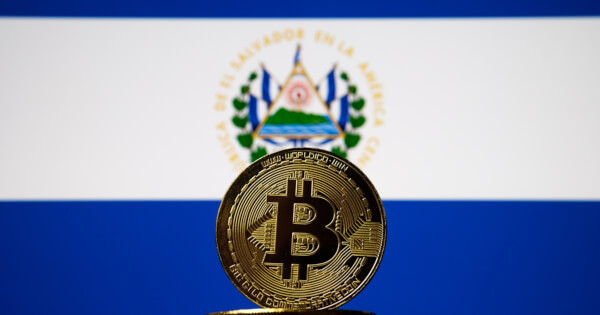Central American Countries Eager to See if El Salvador’s Bitcoin Cut Remittance Costs
Nicholas Otieno Aug 26, 2021 07:00
Central American countries closely pay attention to see if El Salvador’s Bitcoin adoption could reduce the cost of remittances.

The Central American Bank for Economic Integration (CABEI) believes that other central American countries could adopt Bitcoin as legal tender to follow El Salvador.

The executives of CABEI recently talked to Reuters. They revealed that Central American countries are eagerly awaiting to see if El Salvador’s bitcoin adoption as a parallel legal tender could cut the cost of remittances.
Dante Mossi, the Executive President of the Central American Bank for Economic Integration (CABEI), talked about the development and stated that neighbouring countries would be motivated to follow El Salvador’s example if Bitcoin provides significant cost reduction in the remittance market.
“Everyone is watching if it goes well for El Salvador and if, for example, the cost of remittances drops substantially … other countries will probably seek that advantage and adopt it,” Mossi said.
CABEI is an international multilateral development finance institution that aims to strengthen the regional integration of its member countries (Guatemala, Honduras, El Salvador, Nicaragua, Costa Rica, among others) in the global economy.
Mossi termed El Salvador’s Bitcoin adoption plan as an unbelievable experiment that could foster financial inclusion in the country where many people lack access to credit cards or bank accounts and rely on money sent home from relatives living abroad in the United States.
Central American countries which receive the most remittance are those most likely using Bitcoin and emphasised that CABEI had a “fiduciary obligation” to assist El Salvador in its request for help, Mossi added. For example, El Salvador, Honduras, and Guatemala are the nations that would have the most gain if the Bitcoin adoption lowered the cost of sending remittances.
CABEI is providing El Salvador with technical support on the Bitcoin implementation. Carlos Sanchez, CABEI’s head of investments, also stated that the bank’s technical assistance is focused on assisting El Salvador design a legal framework for Bitcoin adoption and ensuring strict international money laundering standards are adhered to.
“The assistance is aimed at helping El Salvador navigate waters that have not yet been explored,” Sanchez said.
Bitcoin Remittances
In June, President Nayib Bukele pushed El Salvador lawmakers and eventually passed legislation that gave Bitcoin an official currency alongside the US dollar. The law takes effect on September 7.
President Bukele describes Bitcoin adoption as a way to facilitate remittance payments from Salvadorans living abroad.
A few days ago, Bukele said that Salvadorans abroad would use Bitcoin to send money instantly to family members living in the country. The president stated that Bitcoin adoption would save local citizens $400 million per year in fees for receiving remittances from abroad.
Bitcoin has an attractive use case in the overseas market. By using crypto as a medium to send money overseas, users may avoid some of the high costs charged by money transfer services and traditional banks.
Several people across the globe regularly send money to their family members and friends abroad. Although overseas transfers drop drastically due to the COVID-19 pandemic, remittances to low- and middle-income countries still reach $450 billion annually.
Crypto users say that Bitcoin can facilitate remittances by removing intermediaries and reducing the costs of overseas payments.
Image source: Shutterstock